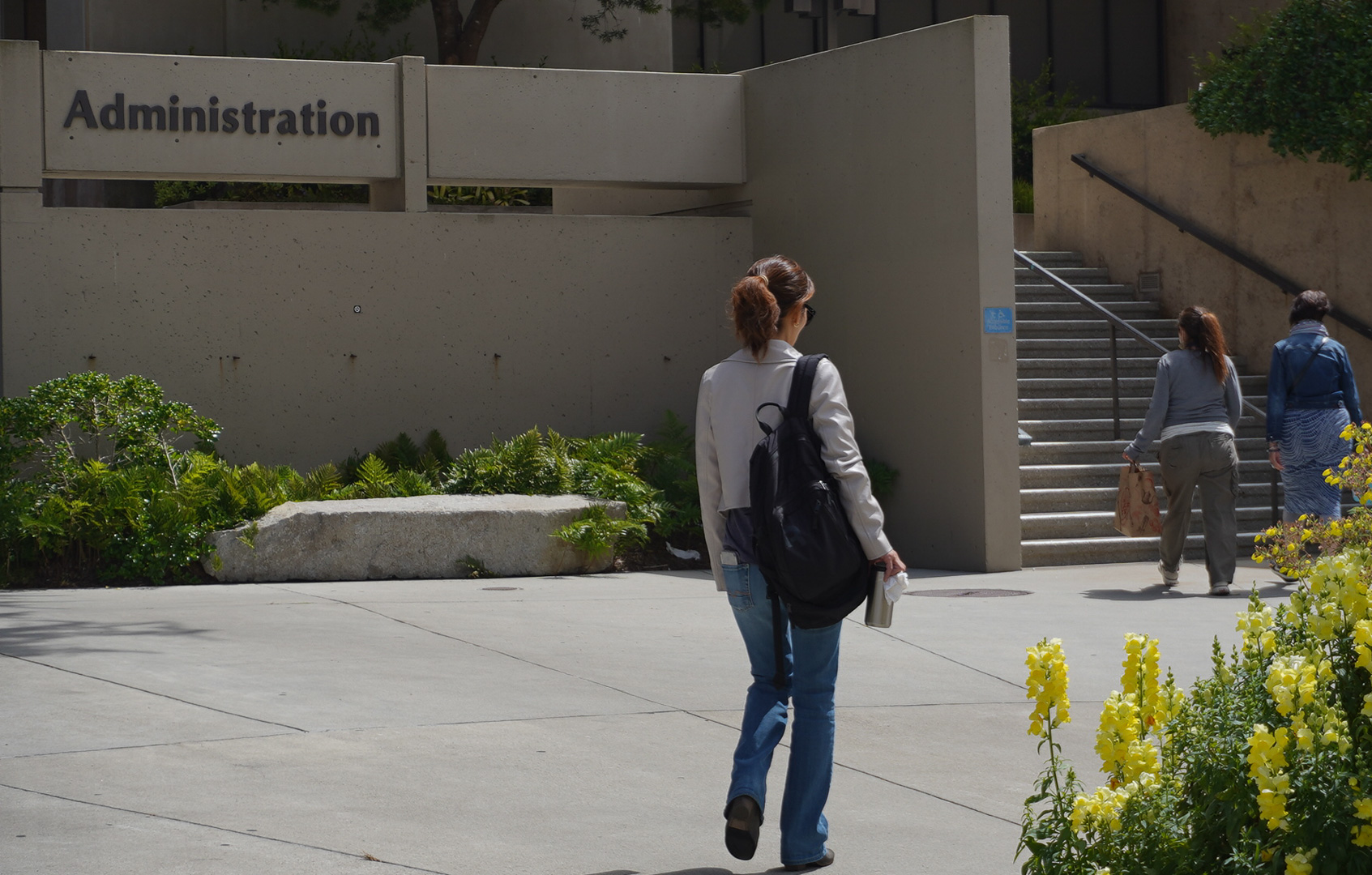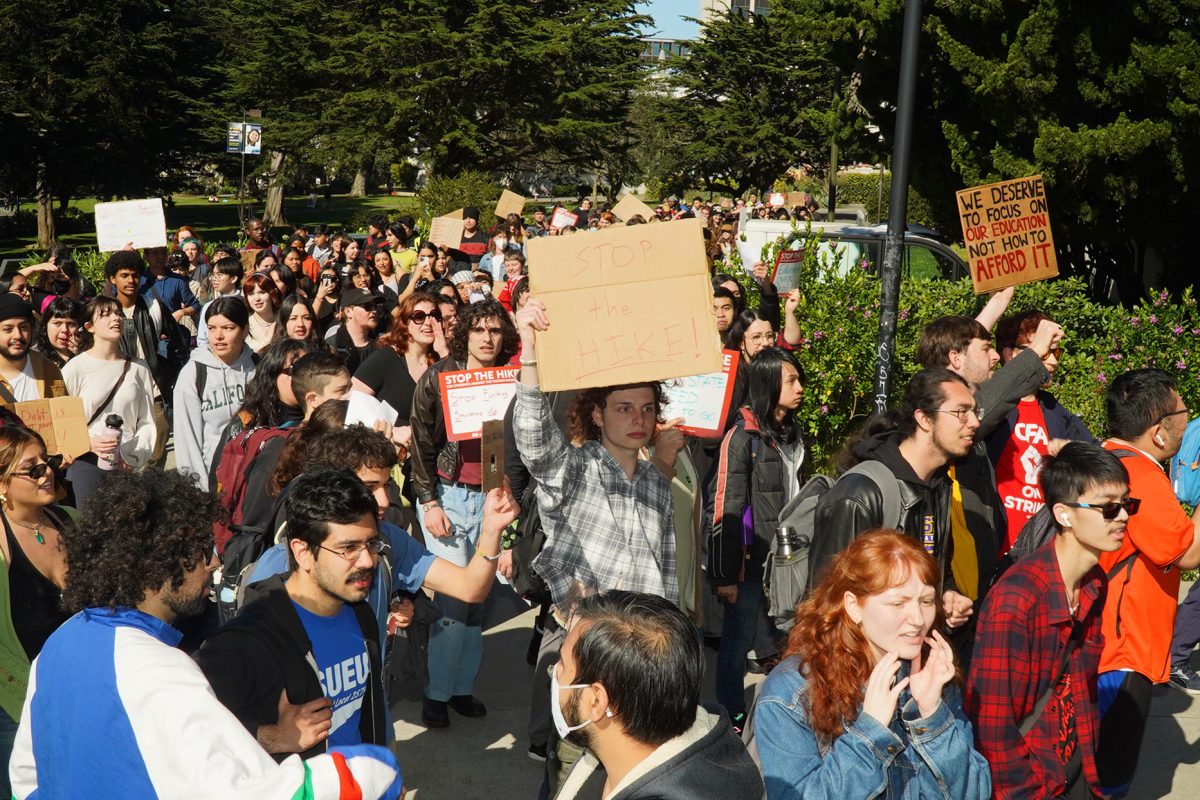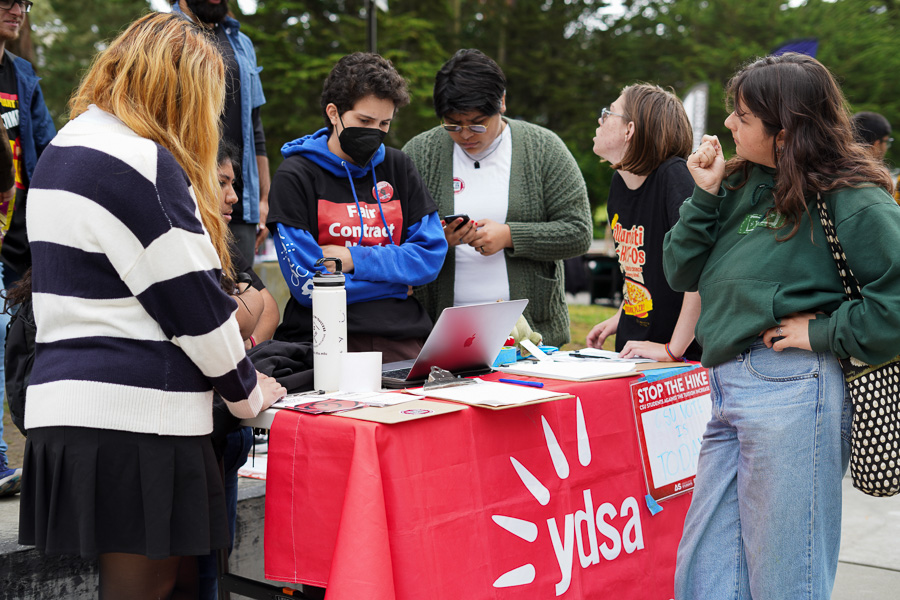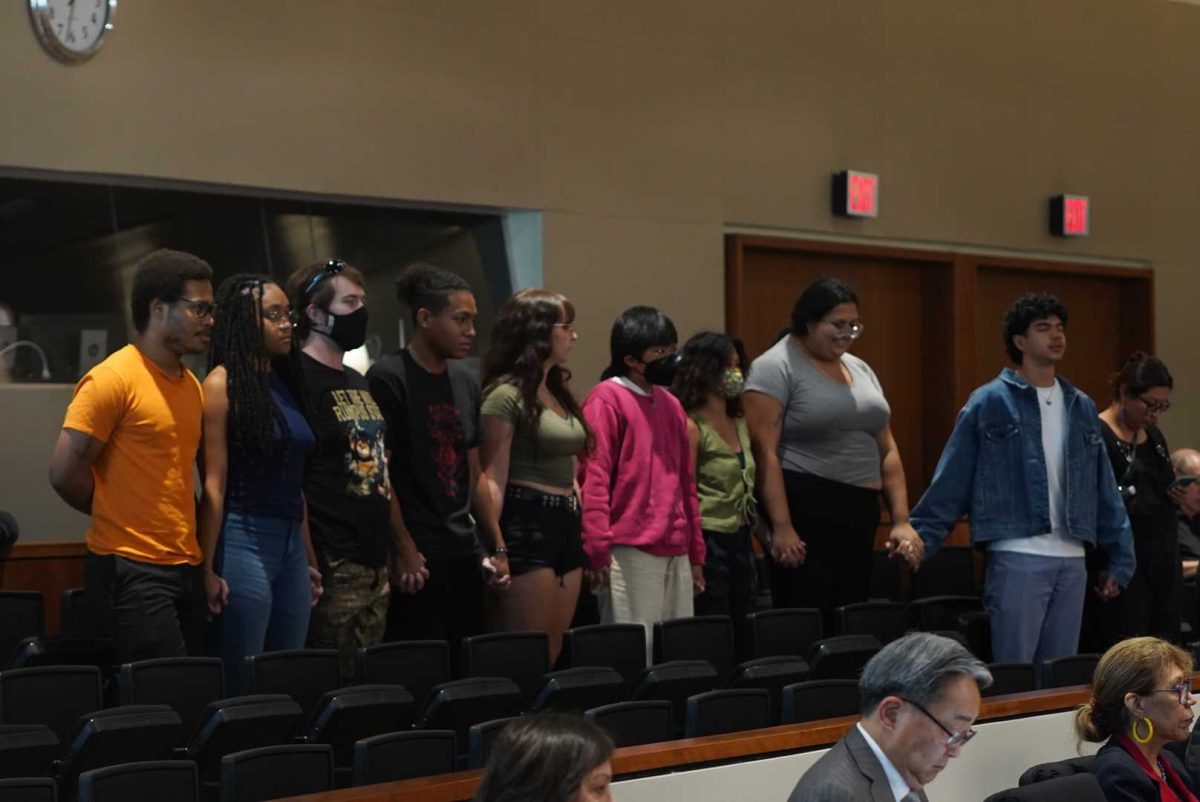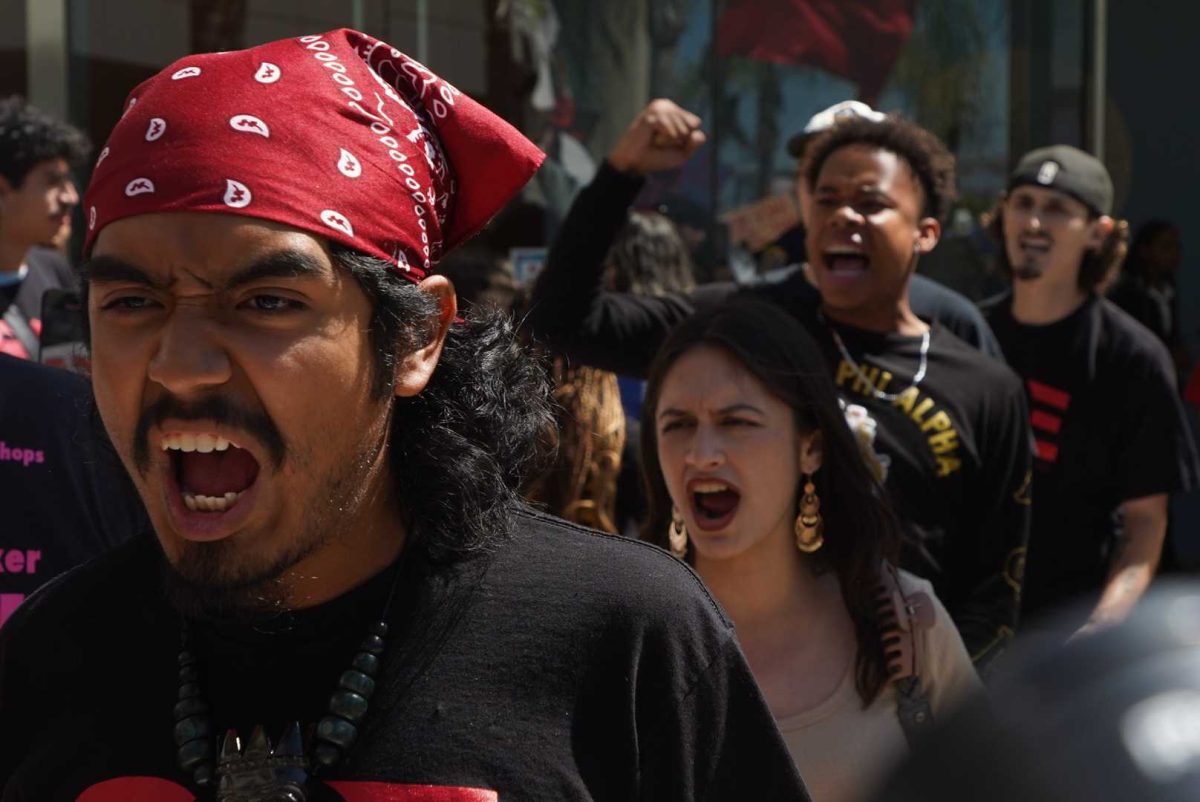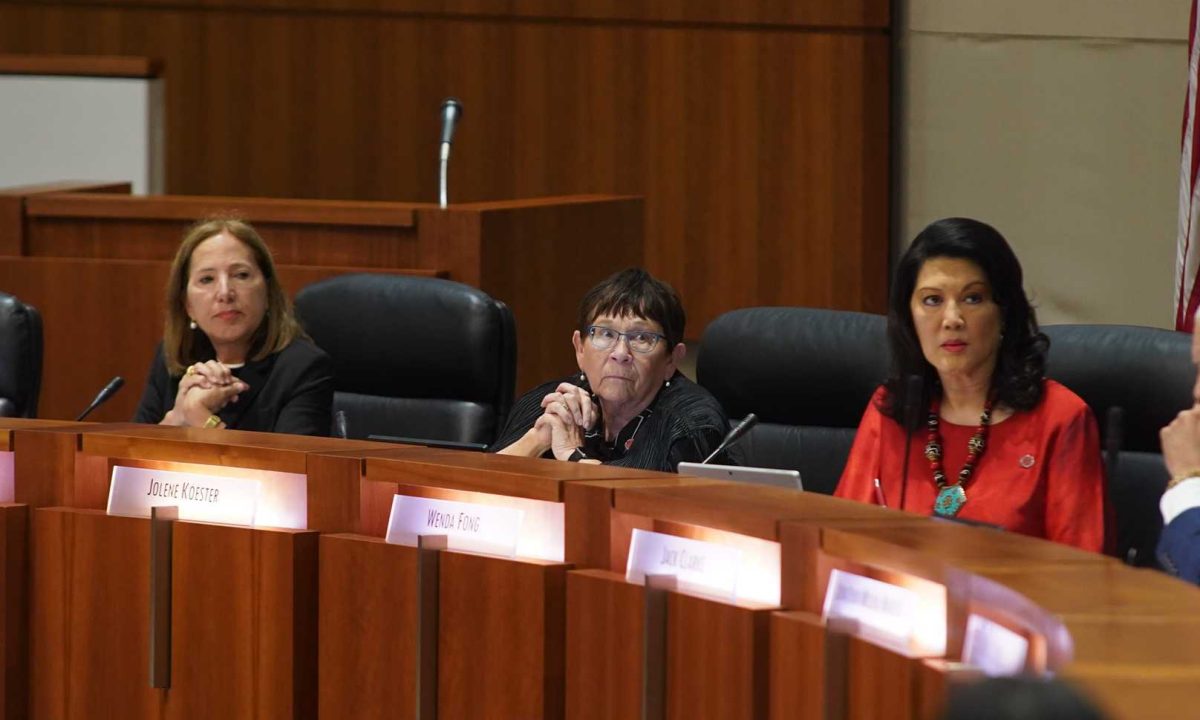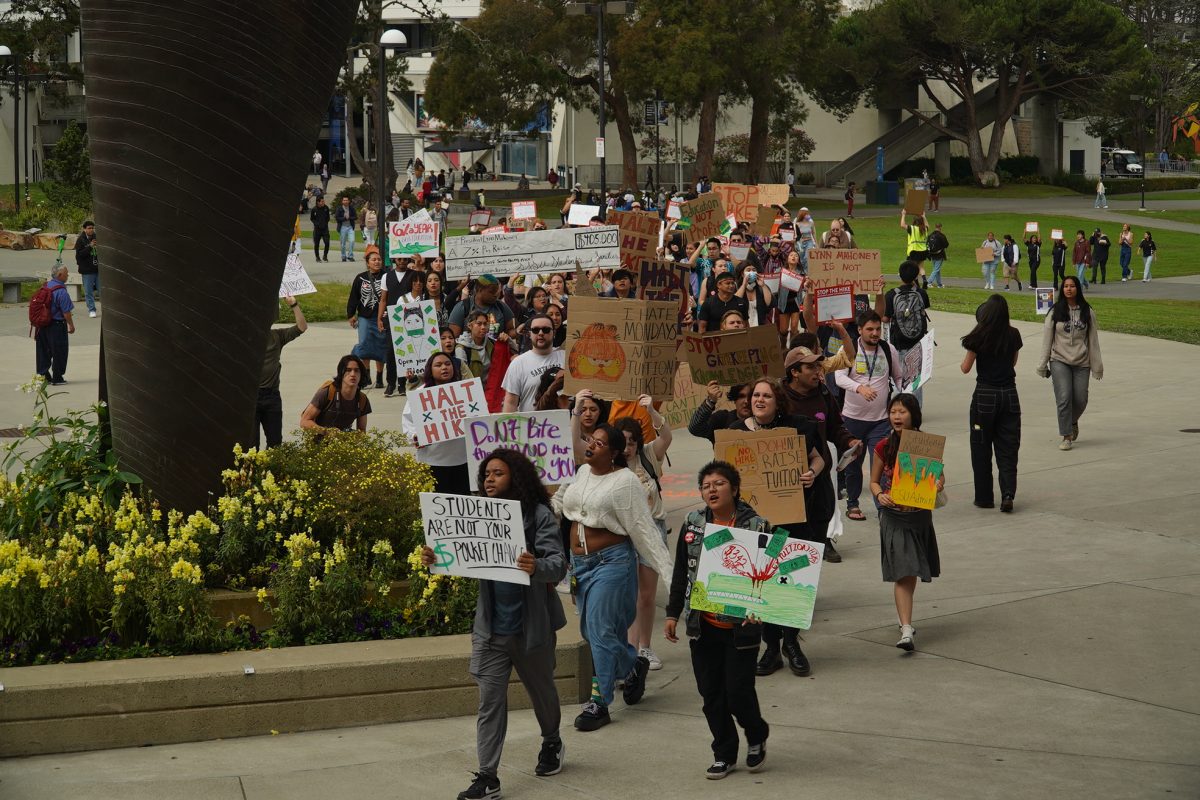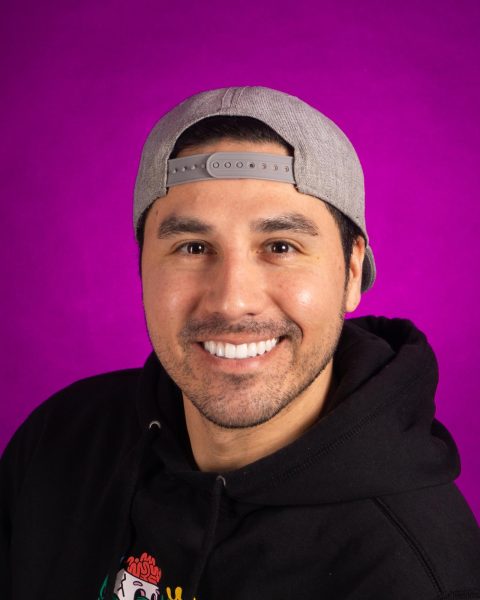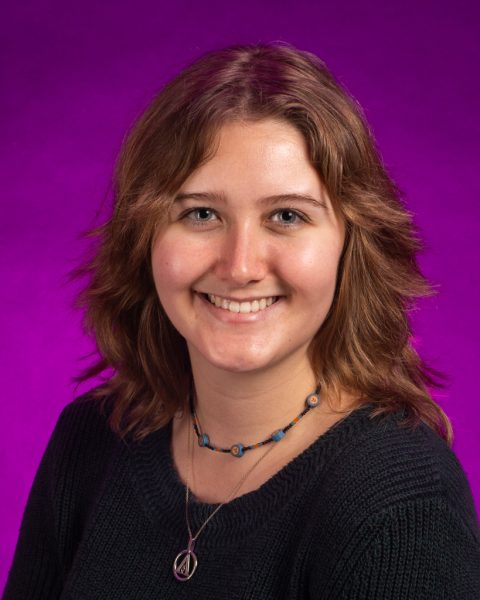The front of the Cesar Chavez Student Center was filled with Associated Student board of director members in protest against California State University’s proposed tuition increase on Aug. 30. Their inauguration had ended moments before, where they pledged to be the students’ voices.
The student representatives took the opportunity of the gathered student crowd to hand out pamphlets and educate concerned students on the potential tuition increase.
“We are firmly opposed to the tuition increase,” Iese Esera, AS board of directors’ chief of staff and chair, said. “Four of us are flying to Long Beach next month and doing in-person public comment as AS of SF State officials.”
Their protest was one of the last few opportunities the student representatives had to raise awareness about the proposed tuition increase as the CSU Board of Trustees is slated to vote on this issue during a Sept. 12-13 meeting.
The proposed tuition hike, following the report of a $1.5 billion CSU budget deficit, would raise undergraduate tuition by 6% every year for the next five years. If approved, undergraduate resident students at SF State taking more than six units would see their tuition rates increase by $342 by the beginning of the next school year. By fall 2028, the students will see their yearly tuition rise from $5,742 to $7,682.
“Where the revenue comes from, there are just really two main sources and that is the state general fund and tuition and fees,” Hazel Kelly, CSU strategic communications and public affairs manager, said. “We can’t really rely on the state fund too heavily because of its volatility and so this multi-year tuition proposal tries to give the CSU some predictable revenue streams.”
If the proposal passes, it would be the second time in 12 years that CSU has raised tuition — the first being a 5% increase in 2017.
Kelly also explained that about 60% of students who receive financial aid programs like Cal Grant, Pell Grant and the State University Grant, would still have their tuition fees covered.
“The remainder of [the 40% of students who are not fully covered], it’s not like everybody has to pay in full,” Kelly said.
She explained that of students who do not receive total financial aid, 18% are expected to have partial tuition covered. Another 18% do not apply for financial assistance, so their financial situation is unknown by CSU. The final 4% pays tuition in full, either out of pocket or with the help of student loans.

However, Esera believes that the CSU needs to recognize the bigger picture for the 40% of students who will have to pay the increasing tuition rates.
“The 60% won’t be affected by this, and that’s great. But you have to look at the grand scheme of things,” Esera said. “How many of those 40% of CSU students are [Black, Indigenous and people of color] individuals? How many of them are trans students? How many of them are differently-abled students? And the CSU refuses to recognize that.”
AS plans to hold two more on-campus events before the next trustees meeting to continue to raise awareness of CSU’s proposal; they plan to table around the Cesar Chavez Student Center on Sept. 6 and a rally at the Malcolm X Plaza on Sept. 11. They also plan to collect student testimonials and have SFSU students appear virtually for public comment at the trustees meeting.
The proposal also comes at a time when SFSU’s enrollment continues to decline. The university’s operating costs are paid by tuition and local fees and it will need to reduce costs by $36 million to compensate for the lowered enrollment rate.
SFSU president Lynn Mahoney expressed that she is reluctantly in favor of the tuition increase to continue to pay the university’s faculty and staff.
“What I would say to a student who says, ‘What am I going to get for your money?’ You’re going to get the best faculty and staff we can possibly get,” Mahoney said. “Your success rests on the success of our faculty and staff. So reluctantly, I am supporting this because I need funds. I need the system to settle with the unions and pay our employees to work.”
Doug Siebum, SFSU broadcast and electronic communication arts professor, believes that the proposed tuition increase could have unintended consequences.
“As prospective students and their parents do a cost-benefit analysis of the school, they will look at things like the high cost of housing, the tuition [and] the cost of basic necessities such as food,” Siebum wrote in an email to GGX. “The higher tuition will price some people out, so they will look at other options.”
The CSU tuition proposal would increase the burden on first-year students and their families. For example, freshman Zaida Velasquez’s family had to prepare for the high cost of living in San Francisco. Her senior year tuition rate is expected to be $6,840.
“I’m from LA so I’m already used to things being expensive, but this is just insane,” Velasquez said. “Before my financial aid kicked in, I showed my Dad the cost for me to attend SF State and he freaked out. To make sure I was able to attend, he took double shifts at work.”
The next Board of Trustees meeting is set for Sept. 12-13. Students can request to speak virtually during live public comment by emailing trusteesecretariat@calstate.edu before Sept. 11. Public comments will begin Sept. 12 at 9 a.m.


